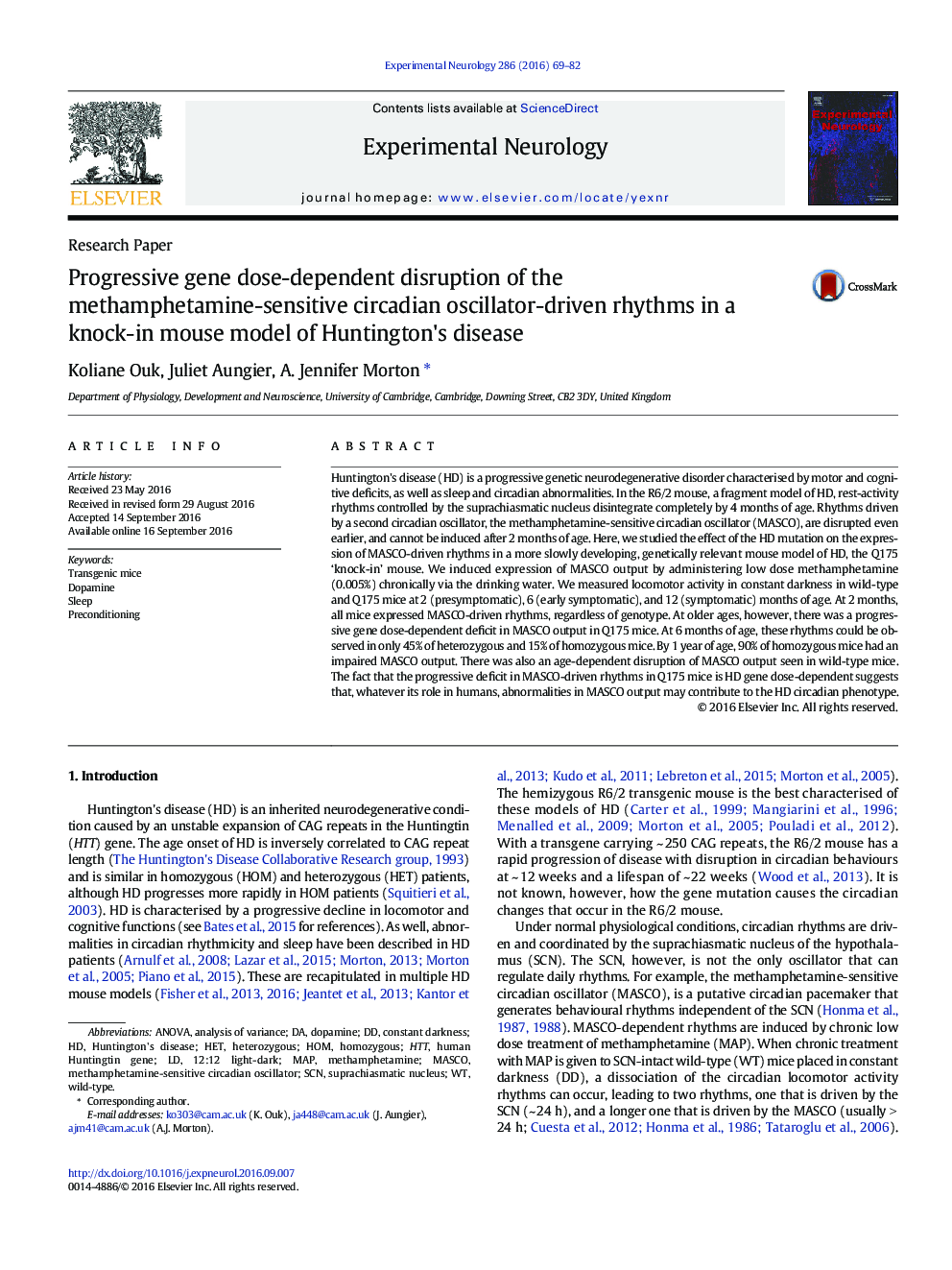| کد مقاله | کد نشریه | سال انتشار | مقاله انگلیسی | نسخه تمام متن |
|---|---|---|---|---|
| 6016836 | 1580152 | 2016 | 14 صفحه PDF | دانلود رایگان |
- Disruption of MASCO-driven rhythms occurs before disruption of the rest-activity rhythms controlled by the SCN is seen in Q175 mice.
- MASCO-driven rhythms are disrupted in Q175 mice in a gene dose- and age-dependent manner.
- 'Priming' of MASCO-driven rhythms in pre-symptomatic Q175 mice delays the disruption of MASCO output.
- Disruption in MASCO-driven rhythms could contribute to the circadian abnormalities and resulting behavioural disturbances in HD patients.
Huntington's disease (HD) is a progressive genetic neurodegenerative disorder characterised by motor and cognitive deficits, as well as sleep and circadian abnormalities. In the R6/2 mouse, a fragment model of HD, rest-activity rhythms controlled by the suprachiasmatic nucleus disintegrate completely by 4Â months of age. Rhythms driven by a second circadian oscillator, the methamphetamine-sensitive circadian oscillator (MASCO), are disrupted even earlier, and cannot be induced after 2Â months of age. Here, we studied the effect of the HD mutation on the expression of MASCO-driven rhythms in a more slowly developing, genetically relevant mouse model of HD, the Q175 'knock-in' mouse. We induced expression of MASCO output by administering low dose methamphetamine (0.005%) chronically via the drinking water. We measured locomotor activity in constant darkness in wild-type and Q175 mice at 2 (presymptomatic), 6 (early symptomatic), and 12 (symptomatic) months of age. At 2Â months, all mice expressed MASCO-driven rhythms, regardless of genotype. At older ages, however, there was a progressive gene dose-dependent deficit in MASCO output in Q175 mice. At 6Â months of age, these rhythms could be observed in only 45% of heterozygous and 15% of homozygous mice. By 1Â year of age, 90% of homozygous mice had an impaired MASCO output. There was also an age-dependent disruption of MASCO output seen in wild-type mice. The fact that the progressive deficit in MASCO-driven rhythms in Q175 mice is HD gene dose-dependent suggests that, whatever its role in humans, abnormalities in MASCO output may contribute to the HD circadian phenotype.
Journal: Experimental Neurology - Volume 286, December 2016, Pages 69-82
